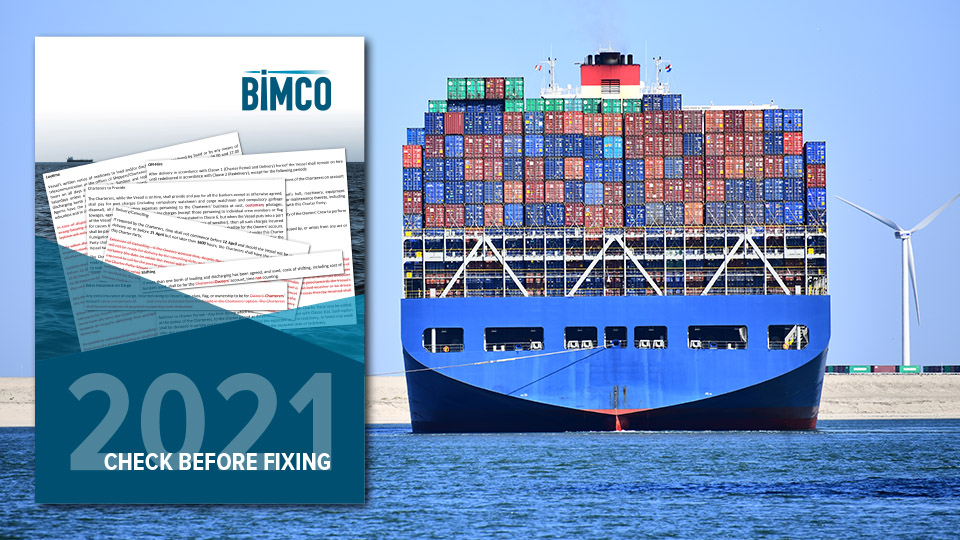Radioactivity Risk Clause for Time Charter Parties 2012
Overview
Radioactivity Risk Clause for Time Charter Parties 2012
BIMCO Radioactivity Risk Clause for Time Charter Parties 2012
(a) The Vessel shall not be obliged to proceed or required to continue to or through or remain at, any port, place, area or zone, or any waterway or canal (hereinafter “Area”) which may expose the Vessel, her cargo, crew or other persons on board the Vessel to danger from levels of ionizing radiations from or contamination by radioactivity from any nuclear fuel, nuclear waste or from the combustion of nuclear fuel, or the radioactive, toxic, explosive or other hazardous or contaminating properties of any nuclear installation, reactor or other nuclear assembly or component thereof (hereinafter “Radioactivity”) determined by a competent national or international authority (including but not limited to the International Atomic Energy Authority and/or the World Health Organization) to be harmful to human health.
(b) If in accordance with sub‐clause (a) the Owners decide that the Vessel shall not proceed or continue to or through or remain in the Area they must immediately inform the Charterers. The Charterers shall be obliged to issue alternative voyage orders and shall indemnify the Owners for any claims from holders of the Bills of Lading caused by waiting for such orders and/or the performance of an alternative voyage. Any time lost as a result of waiting for or complying with such orders shall not be considered off‐hire.
(c) The Vessel shall have liberty to comply with all orders, directions, recommendations or advice of competent authorities referred to in Sub‐clause (a) and/or the Flag State of the Vessel in respect of arrival, routes, ports of call, destinations, discharge of cargo, delivery, or in any other way whatsoever.
(d) The Charterers warrant that they shall not load cargoes and/or empty containers and/or supply bunkers that have levels of Radioactivity in excess of normal radiation levels for these items. The Owners, at their discretion, may arrange for a radioactive survey by an independent qualified surveyor. If the level of Radioactivity in the cargoes, empty containers and/or bunkers is determined by the surveyor to exceed normal levels for these items, the Owners shall have the right to refuse to load such cargoes, empty containers and/or bunkers, and the cost, expense and time for the survey shall be borne by the Charterers. If radiation levels are found by the surveyor to be within normal levels for these items, the cost, expense and time for the survey shall be borne by the Owners.
(e) Any delays arising out of measures taken by port authorities to screen the Vessel for radiation either in the countries affected by Radioactivity or at subsequent ports of call shall be for the Charterers’ account. Any time lost as a result of complying with such screening shall not be considered off‐hire. If the Vessel’s ballast water is found to be contaminated by Radioactivity above normal levels then the cost of the safe disposal of the contaminated ballast water, decontamination of the Vessel’s ballast water tanks and any delays arising out of the contamination to the Vessel shall be borne by the Charterers.
(f) If in compliance with this Clause anything is done or not done, such shall not be deemed a deviation, but shall be considered as due fulfilment of this Charter Party. In the event of a conflict between the provisions of this Clause and any implied or express provision of the Charter Party, this Clause shall prevail to the extent of such conflict, but no further.
Explanatory notes
Background to revision
The original Radioactivity Risk Clause for Time Charter Parties was drafted in response to the leaking of radioactivity from the Fukushima Nuclear Plant following the earthquake and tsunami that struck the north-east coast of Japan in March 2011.
During the past year BIMCO has received some useful feedback from users, based on their own experiences, on how the Clause might be improved. BIMCO decided to undertake an early revision of this Clause and the result is the attached Radioactivity Risk Clause for Time Charter Parties 2012.
The objective of the Clause remains unchanged, which is to provide owners and charterers with a balanced contractual solution to address the potential risk of exposure to high levels of radioactivity based on thresholds established by competent authorities. Owners are strongly recommended to consult with their P&I Clubs before contemplating any “deviation” from the ordered voyage.
Explanatory notes
The following notes highlight and explain the differences between the revised Radioactivity Risk Clause for Time Charter Parties and the original version. There are no changes to Sub-clauses (b), (c) and (f) , except for a cross-reference in sub-clause (c) to sub-clause (a).
In sub-clause (a) the reference to ‘local authorities’ has been removed. It was considered irrelevant because radioactive incidents of a magnitude likely to impact on international shipping are most likely going to be dealt with by authorities at national level at least.
Sub-clause (d) has been amended to take into account that the level of radioactivity found in hydrocarbons, such as oil cargoes and bunkers, is commonly higher than the background level in the local environment. For this reason, sub-clause (d) now refers to the normal background radiation levels of the items (goods, bunkers, empty containers) to be carried, rather than to the background radiation levels of the particular area.
In response to criticism that making the costs and time for radioactive surveys always for the charterers’ account could inadvertently trigger more surveys at the owners’ behest than necessary, the allocation of responsibility for surveys has been amended. In the revised Clause, cost, expense and time for the survey is now borne by the charterers only if the radiation levels are found by the surveyor to be higher than normal radioactivity levels for the surveyed items, otherwise they rest with the owners who have requested the survey. This solution strikes a fairer balance between the parties and will prevent potentially unnecessary radioactive surveys being conducted by the owners.
Sub-clause (e) has been amended to provide the owners with protection against the consequences of unknowingly taking on radioactive contaminated ballast water at seaports in or adjacent to the area affected by high levels of radioactivity. The costs of safe disposal of the contaminated ballast water, decontamination of the Vessel’s ballast water tanks and any consequential delays are to be for the charterers’ account.
This provision has been added to the Clause because some countries, following the incident in Japan, introduced checks for radiation levels in ballast water for ships entering their ports.
Originally published in BIMCO Special Circular No. 1, 30 March 2012 - Radioactivity Risk Clause for Time Charter Parties 2012.
Related Help & Advice
Create or edit a contract
The one-stop digital shop for all the standard maritime contracts and clauses you’ll ever need.
Latest Related News
-
BIMCO adopts portfolio of four ETS clauses
The shipping industry is facing an increase in new regulations from the International Maritime Organization (IMO) and the European Union (EU) and an increase in the urgency to decarbonise. To support the industry, BIMCO has developed a portfolio of new emission trading scheme (ETS) clauses.
-
BIMCO adopts new CII clause for Voyage Charter Parties
The shipping industry is facing an increase in new regulations from the International Maritime Organization (IMO) and the European Union (EU) and an increase in the urgency to decarbonise. To support the industry, BIMCO has developed a new CII Clause for Voyage Charter Parties. The clause was adopted by BIMCO’s Documentary Committee on 11 October and is the latest addition to BIMCO’s portfolio of carbon clauses.
-
BIMCO’s CII clause adopted
The BIMCO Documentary Committee has adopted a CII Operations Clause for Time Charter Parties which will help the industry commercially navigate the complexities of the new CII regulations from the International Maritime Organization (IMO).
-
Fumigation
BIMCO providing information and guidance relating to fumigation of cargoes that are shipped under the IMSBC Code, the Grain Code and the IMDG Code.
-
Bottom fouling
From time to time, BIMCO is approached by members enquiring about responsibility for the cleaning of a ship’s underwater parts when it has been idle at a port for a long time pursuant to the orders of the time charterers.
ELSEWHERE ON BIMCO
Holiday calendar
BIMCO's Holiday Calendar covers general holidays in over 150 countries, plus local holidays and working hours in more than 680 ports around the world.
Learn about your cargo
For general guidance and information on cargo-related queries.




